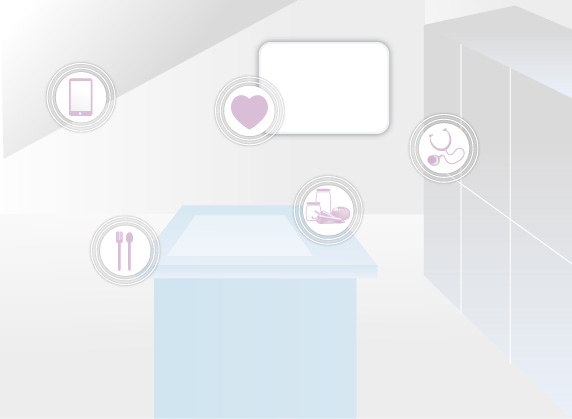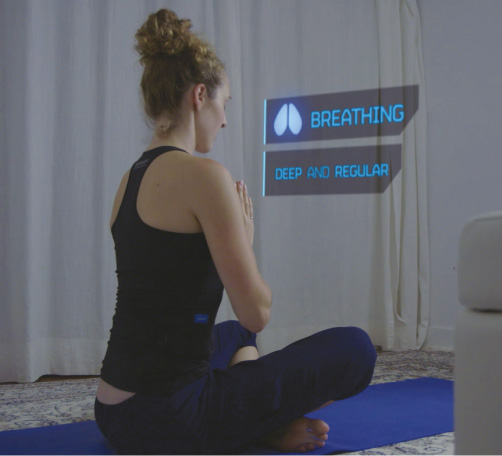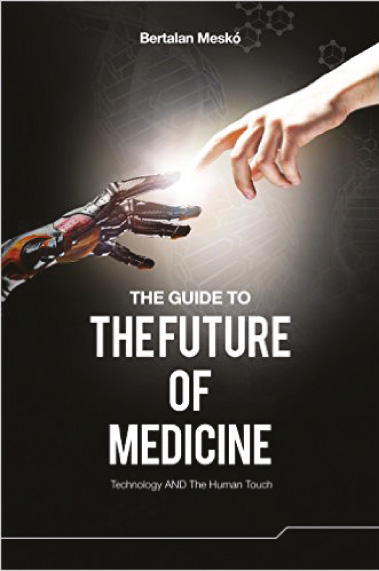HealthManagement, Volume 16 - Issue 3, 2016

Already, healthcare is being outsourced to the home in a bid to encourage more patient involvement in wellbeing and to develop centres of health expertise in place of multi-bed hospitals. The Medical Futurist, Bertalan Meskó reflects on how the future of home healthcare could evolve.
The Home and Future Healthcare
The biggest part of healthcare is self-care which takes place outside the medical system. I need to manage my health and disease not only in the hospital and during the doctor visits, but also at home. Still when people talk about the future of hospitals, they usually depict amazing technologies and really huge devices.
What if the majority of care could be provided in our homes? What if wearable and other devices could measure what needs to be measured in the bathroom or bedroom? What if smart clothes and brain activity trackers could change the way we work from home?
Let’s see what technologies might transform our home to be the new clinic, the hospital of the future.
The Bathroom
This room could include a smart scale that measures weight, body fat percentage, recognises you and sends data immediately to your Smartphone. The mirror could be a digital one analysing your stress levels, pulse and mood just by reflecting you. It could present news related to these parameters. You could use a smart toothbrush that could analyse whether you are hydrated or not and give rewards for spending enough time with that activity. Then in the toilet, there could be a little microchip for urine analysis. When you go into the shower, the smart home could bring the temperature down by using the smart device like Nest acquired by Google. Water quality and quantity, cardiac fitness and a range of other simple devices could measure health in the bathroom.
 |  |
The Bedroom
The bedroom could include smart sleep monitors which first give you data about what quality of sleep you had and then wake you up at the best time to make sure you are energized in the morning. When you go to bed, the smart sleep monitor could let the Nest know it should bring the temperature down because you are about to sleep. Such monitors could include specific music and lights to make sure you are gently woken up. Pulse variability, breathing and oxygen saturation could be measured to reduce sleep apnoea and snoring.
The Kitchen
There could be smart forks and spoons that either teach us how to eat slowly or help people with Parkinson’s disease eat properly again. Scanners could measure the ingredients, allergens and toxins in our food and let Smartphone applications help control our diet. There could be 3D food printers using fresh ingredients to create pizza, cookies, or almost any kind of final products just like what Foodini does these days.
The Work Desk
You could wear smart clothes measuring vital signs, posture, stress levels and brain activity telling you when exactly to work for better performance. Services such as Exist.io could constantly look for performance tips by finding correlations between our digital habits and health parameters.
We can use almost all these devices now and looking ahead into the future the best is just yet to come. The quest is to find those technologies that can really change the way we live our lives by bringing the clinical and hospital equipment our actual homes providing better care without making the distance between patient and caregiver wider.
Biography
Dr. Bertalan Meskó, PhD is the Medical Futurist, keynote speaker and consultant. A geek physician with a PhD in genomics and Amazon Top 100 author, he envisions the impact of digital health technologies on the future of healthcare, and helps patients, doctors, government regulators and companies make it a reality. He is the author of The Guide to the Future of Medicine, My Health: Upgraded and Social Media in Clinical Practice.


